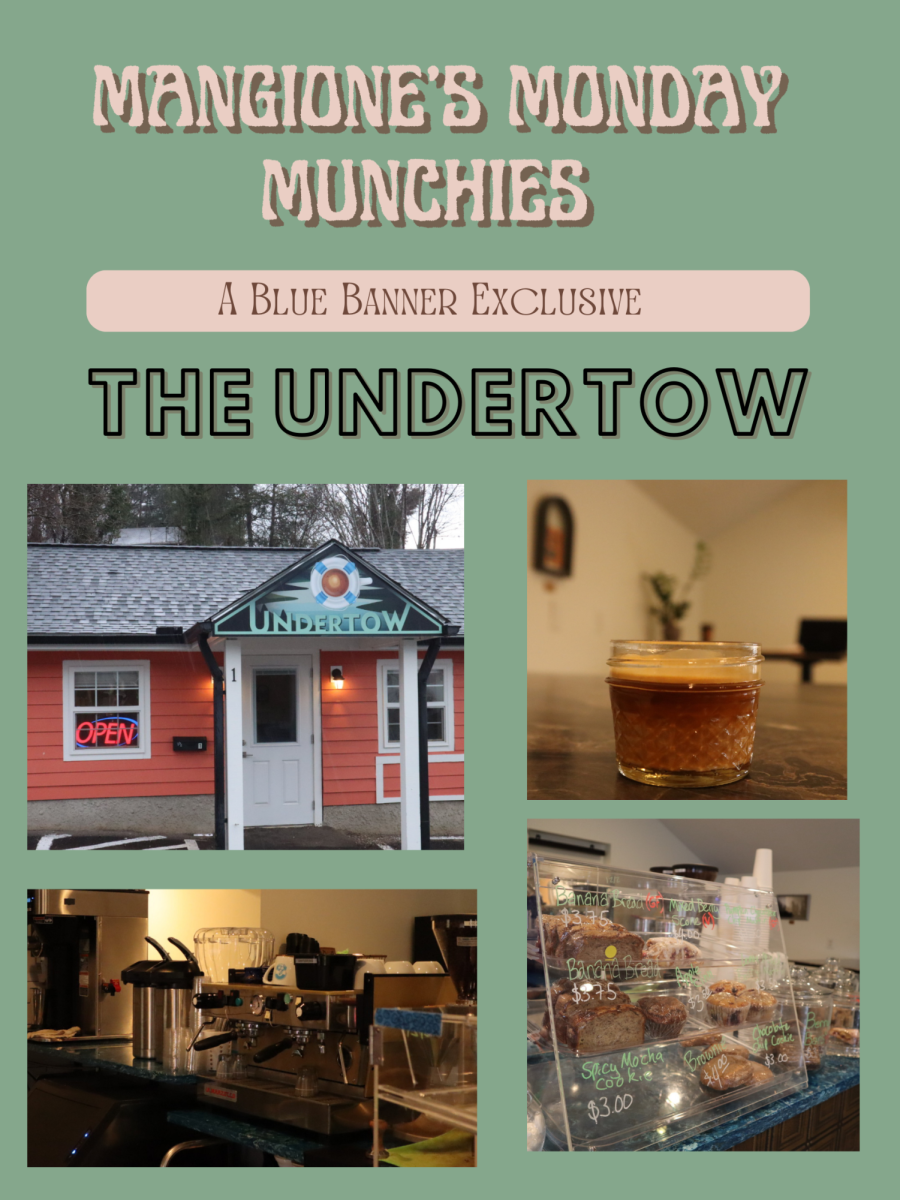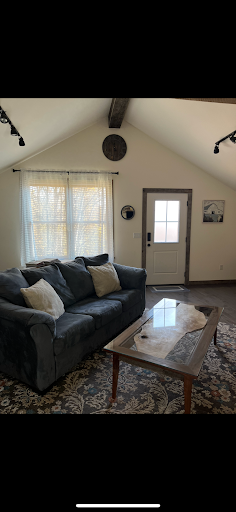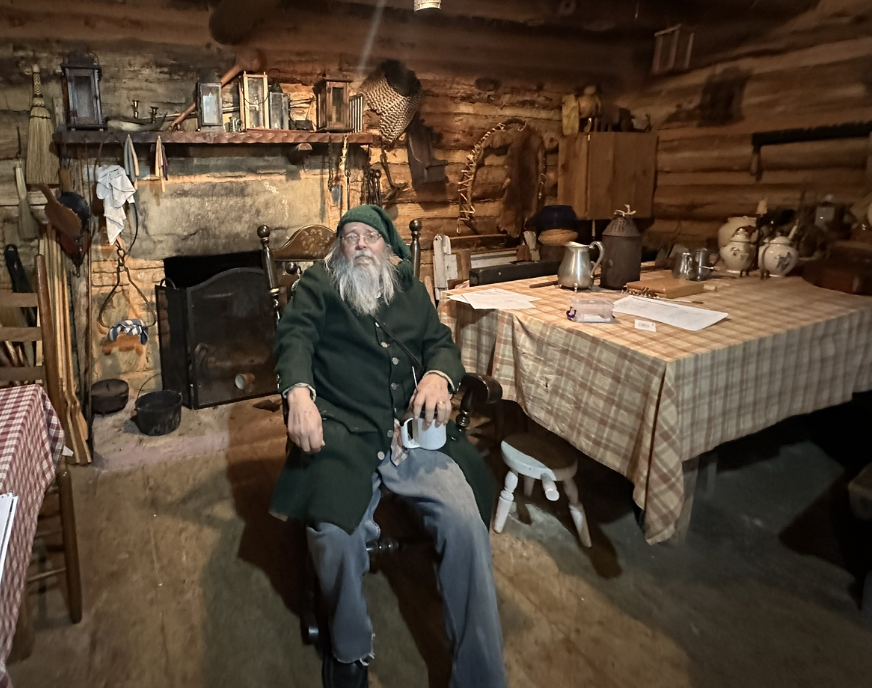By A.V. Sherk – Asst. Sports and Multimedia Editor – [email protected]
Olyver’s Initiation
“They blindfolded us and took us to the Governor’s Western Residence,” Ordo Bos Canis inactive member, Olyver Silinski said. “We went into the basement. The established members were all wearing robes and held candles. We had a candle-lighting ceremony, where we said our vows to uphold the club, and the mace from the library was on the table. Then we all just ate pizza, drank Cheerwine, and hung out. It was fun.”
Initiation into the club was a mixture of a mysterious knighting ceremony and the usual college good time, according to Silinski. The UNC Asheville senior said that he wanted to get into as many things as he could in his freshman year.
“It was fun and interesting,” Silinski said. “That made it exciting.”
Though he had not been fully active, it had not been an easy decision to expose the group, knowing full well that there would be consequences to his actions.
“They’re probably going to kick me out,” Silinski said. “I understand. One of the main tenants and the first vows we take of the club is to keep it completely secret. The point of the club is to do good deeds without seeking glory or acclaim, and that’s why we’re sworn to secrecy. Or, at least that’s what the faculty tells us.”
According to Silinski, the public knowledge of OBC existing won’t destroy it.
“If anything I think more people will be inspired to step up as a leader now that they know that someone might be watching.” Silinski said.
Silinski’s choice to reveal OBC was directly affected by the lack of the club’s transparency with the student body.
“If we wanted to really connect with students and do things for campus, then we should work with the students, not outside of them,” Silinski said. “Because there are a lot of people who aren’t into school spirit. Bos Canis thinks that lacking school spirit is an issue, while it feels like a non-issue to the majority of the student body.”
According to Silinski, a possible future event may be a T-shirt swap where students are asked to exchange their clothes representing rival universities for a UNCA substitute.
“Bos Canis seems to think that school spirit is external, like wearing a T-shirt,” Silinski said. “I think that everyone came to UNCA for a reason. I think that school spirit is a sense of belonging and identifying with a place of learning, and that isn’t always something you show on your sleeve.”
What is Ordo Bos Canis?
This is how the faculty advisor for the group, Brian Davis, described the secret society.
Ordo Bos Canis is a group of students attending UNC Asheville, but it is not a recognized student organization. It can fund events, but it does not do any fundraising. The purpose of Ordo Bos Canis is to create, promote, enhance and advance school spirit and university traditions; however, no one except those directly involved are allowed to know about it.
“The group started as a student alumni group,” Davis said. “There were four students originally and it wasn’t a secret society. It was a group of students trying to come up with new traditions. ”
Traditions such as a live mascot, the UNCA fight song, the root beer kegger, cider and fire, and the short lived car smash were all thought up by members of OBC.
“This group of students, from the beginning, did not want the credit for starting these events,” Davis said. “They think (the events) up, and, as long as they are reasonable, they will fund them. Then they hand them off to other organizations that could continue those traditions. That’s how traditions continue.”
The Order does not fund itself with student fees or tuition, according to Davis. Instead, they are given an annual allowance of $2,000 by the UNC Asheville Foundation.
“The $2,000 that OBC has this year did not stop something else from happening,” Davis said. “Their existence has not prevented other groups from receiving something.”
Davis clarified that the student fees that go in to the Campus Commission’s budget are not the same dollars that fund OBC.
“OBC does not get Campus Commission dollars,” Davis said. “They are given money through donors, and that’s how they are funded.”
According to the UNCA website, The UNC Asheville Foundation is a private, charitable organization that manages and distributes private support. The UNC Asheville Foundation operates out of the UNCA advancement office, in which Brian Davis and other OBC faculty advisors are employed.
“The student orgs, if they wanted to, could come to the UNC Asheville Foundation and request funding,” Davis said. “If the funding is available, they have a chance to receive that funding. Student orgs don’t apply for donated dollars. They have never applied for it, for whatever reason. Most of those dollars go toward scholarships, special programs around campus; they go wherever the donors want them to go.”
Wills of Few, Rights of Many
The Order meets every Thursday in the Ramsey Library, a public location. However, they do not use the group’s real name when setting aside the meeting space, according to Tammy Piner, a library administrative assistant. Ordo Bos Canis used the name “Student Thinktank” when they reserved a room for Sept. 26. According to Davis, it is the students’ wish to remain anonymous and have OBC remain a secret from the student body.
“The students that started this organization thought the best way (to enhance school spirit) and to honestly do it was to not take the credit,” Davis said. “It has continued under that mindset, so it has operated as a secret group. The students working on this project would not get the credit because they don’t want the credit.”
However, a number of UNCA students say that they don’t completely buy into that reasoning.
“I don’t think it’s a problem of getting glory. I think it’s more of owning up to the fact of what you’re doing.” UNCA sophomore and Metabolism writer and editor, Taylor Greenleaf said. “It seems like (Underdog Productions) does exactly what these people are doing. They both make things for a bunch of students to come together around. I don’t understand why we need a group that’s secret to stand right next to a group that is totally out there and that’s great for our community and our campus.”
Hannah Rohed is a very active member of Underdog Productions, an established student organization which brings the student body a wide selection of weekend and evening activities and entertainment options.
“Sounds like Skull and Bones in Yale. When was it organized? Who knows about it? Why is it secret? I don’t see a point in keeping it a secret from everyone else,” Rohed said. “The point of UP is to be involved with the students and find out what students want, and we do it in a very public fashion. They can’t prove that this is what the students say. Maybe it’s just what these people want. They aren’t representing the entire student body. They don’t have a representative from each organization. They only have them from certain ones. In order to have true diversity, they need to include everyone.”
Alex King, a fellow UP member and UNCA junior, also expressed concerns about feedback and efficiency.
“My question would be, why keep it a secret?” King said. “I think if you’re trying to do something for the community, you should interact with them. Is there another agenda they have?”
As members of a legitimate student organization, Rohed and King agree that secrecy and the coordination of events on campus should not mix.
“I think it shouldn’t exist,” Rohed said. “I think people should be transparent, and having a secret society that organizes events, that everyone thought was put on by other organizations, it seems dishonest.”
Greenleaf said she believes people have a right to know about the club.
“I don’t understand why it has to be secret if the whole idea is for us to come together” Greenleaf said. “It doesn’t make sense to have a secret organization to further connect students.”
However, what seems dishonest to some may seem mysterious and interesting to potential students. According to Isabel Parker, Asheville High School student and possible UNCA applicant, many factors go into choosing a college, including a possible secret society centered around school spirit.
“The size of the school, where I feel comfortable, what things will come in handy for me when I need to study,” Parker said when describing what she looks for in a college. “School spirit is definitely a factor for me.”
Latest Stories
- From passion to professional play: How a UNCA League of Legends MVP hit their stride
- Old UNCA sorority still has its footprints on campus
- Mass communication students visit Charlotte to watch Hornets game
- Blue Banner Connections #1
- Sex toys get luckier than traditionalist men
- A student's perspective on traveling and concerts
- Local bead and craft store continues to thrive under new management
- Taylor Swift’s rising stardom causes friction between fans
- Ensuring AI makes appropriate decisions
- Five books that will fill the A Court of Thorns and Roses-sized void in your soul


















solano college • Apr 26, 2017 at 8:23 pm
I don’t seriously accept your claims. I suggest
writer has it’s opinion and it has the right to be, but still I can’t agree on at least 2
issues covered. https://goo.gl/Vvr0Ug
Josh • Oct 2, 2013 at 3:42 pm
How does this encompass 70 years? Does it not engender school spirit for there to be talk about secret societies? Might this just be a means to build up history and traditions? Would it be possible to interview students who might not have bias towards the organization? Who knows?